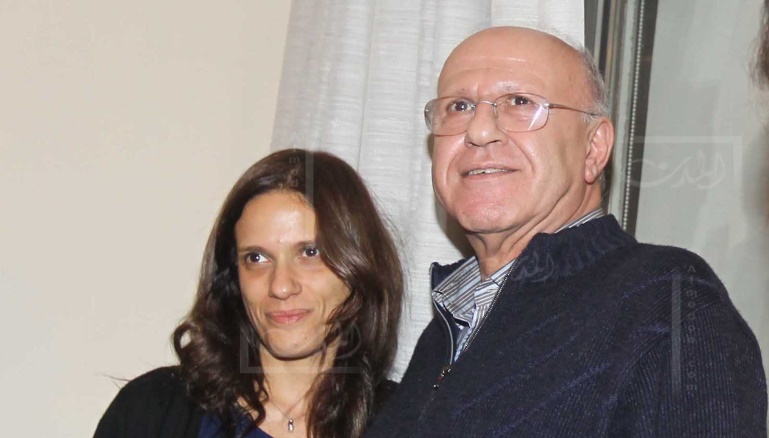Looking beyond the release of Michel Samaha
Myra Abdallah/Now Lebanon/January 15/16/
Article 315 of the Lebanese penal code stipulates that terrorist acts – defined as “all acts that aim at creating a state of terror and are committed using explosives, flammables … that can cause a public danger” – are punishable by a fixed-term of hard labor. Former Lebanese minister and cabinet member Michel Samaha was arrested on August 9, 2012, on charges of plotting a terrorist act, possession of illegal weapons and endangering public safety due to his involvement in transporting explosives from Syria to Lebanon. He was listed as a global terrorist by the United States in December 2012 for helping Syrian president Bashar al-Assad launch attacks in Lebanon – a fact that was confirmed by a leaked video. Samaha was released on bail yesterday, January 14, 2016, after spending less than three and a half years in prison. “The main problem is not Samaha’s release [on bail],” said lawyer Marwan Sakr. “The main problem is the original court decision that was significantly reduced.” In May 2015, the military court sentenced Samaha to four and a half years in prison for transporting weapons from Syria to Lebanon, plotting terrorist attacks, inciting sectarian conflicts and conspiring to assassinate Lebanese political and religious. “Technically, Samaha was not accused of terrorism; he was accused of crimes charged for no longer than 3 years, such as transportation of weapons,” said Tripoli MP Mosbah al-Ahdab. “From the beginning, he was accused by Sakr Sakr, the government’s commissioner at the military court, who is reportedly affiliated with the March 14 coalition and the Future Movement.”
The decision was objected to by a large number of Lebanese politicians and citizens; consequently, Judges Sakr Sakr and Hani Helmi al-Hajjar filed an appeal with the Court of Cassation to annul the first verdict, and sought to convict Samaha of plotting to assassinate political and religious figures in Lebanon. However, Samaha, who was arrested in 2012, has already served most of his sentence since the judicial year in Lebanon is nine months long. “This is definitely a scandal on every level. His case is not closed yet. He might get a longer sentence after later court sessions and go back to jail. Therefore, he shouldn’t have been released; especially that it is very rare for the military court to grant to release on bail a person accused of these types of crimes. But, the court has the discretionary authority to make such decisions and set the bail amount, which was also significantly lower taking into consideration the majority of [Samaha’s] case. In my opinion, what Samaha did should be considered a major crime and he should be convicted to a minimum of 10 to 15 years,” Sakr told NOW.
Lebanese politicians – March 14 leaders in particular – and a large number of Lebanese citizens’ greatly objected to the court’s decision to release Samaha and accused it of politicizing the military court. The Sunni community adamantly opposed the court’s decision, especially since many Tripoli residents—accused of terrorism and radicalization— have been imprisoned in Roumieh for years, without proof of a crime or any court decision. “Samaha’s release should be added to the systematic process of weakening and distorting of the Lebanese state,” Associate Professor of Political Science and International Affairs at Lebanese American University (LAU) Imad Salamey told NOW. “The decision aims at broadening the rupture between the Lebanese citizens, especially that the implementation is happening on a double-standard basis,” Hundreds of citizens – particularly from the Sunni community – are in prison without a conviction whereas the trans-boundary Shiite militia group is committing criminal operations without any restrictions.
Consequently, the evening after Samaha’s release, Lebanese protestors blocked roads all over Lebanon and started organizing protests. A number of Roumieh inmates, reportedly Islamists, are on hunger strike. “March 14 leaders are objecting and calling on people to protest, but stressing that they cannot protect them if they are accused of committing acts of terrorism for protesting. People who are protesting in Tripoli are being accused and charged with terrorism,” al-Ahdab told NOW. Analyst who spoke to NOW said that the court’s decision cannot be taken from a legal point of view only. The decision is more political than legal. Sakr told NOW that a court that changes two of its judges a month before taking the decision on Samaha’s case is definitely politicized. “The political composition of the military court goes back to the Syrian occupation; therefore, it is theoretically compassionate with Samaha, and this is obviously one of the repercussions of the Syrian influence on Lebanese institutions,” said Salamey.
Since yesterday, the Lebanese political scene was once again divided into two camps. March 8 politicians and their allies and supporters did not object Samaha’s release, while March 14 leaders started calling on their followers to take to the streets. However, the fact that March 14 coalition, more specifically the Future Movement, are in charge of the Ministry of Justice raises a lot of questions among analysts. “It is true that the military court is not affiliated to the Ministry of Justice that is ruled by the Future Movement. However, March 14 nominated the military court’s prosecutor,” said al-Ahdab. “From one side, March 8 politicians are claiming that Samaha served his term although he did not commit a crime, and this is wrong. But from the other side, March 14 politicians are executing the will of March 8 leaders and are conspiring with each other, and this has become very obvious.”
“Michel Samaha was not accused of terrorism because the current government is going in this direction. This might be one the results of the dialogue between the Future Movement and Hezbollah,” he told NOW.
“The only solution I see is the resignation of March 14 politicians from the government, taking the opposition status, in order to fight the Iranian- Syrian occupation of Lebanon,” said Salamey.
March 14 Supporters Stage Rally in Ashrafieh against Samaha’s Release
Naharnet/January 15/16/Young supporters of the March 14 coalition staged a rally on Friday outside ex-minister Michel Samaha’s house in Ashrafieh to protest his controversial release from prison. They gathered at Sassine Square before marching towards the former minister’s nearby residence. Security forces had earlier in the day blocked the roads leading to his house near Rizk Hospital in Ashrafieh in Beirut, amid strict security measures. Demonstrators also passed by the scene of the assassination of Internal Security Forces Intelligence Bureau chief Wissam al-Hassan, who was killed in a bombing in Ashrafieh in 2012. The Intelligence Bureau played a major role in Samaha’s arrest.
“The Holy Land of Martyrs Ashrafieh Does Not Welcome You, Michel Samaha,” said a banner carried by protesters. “The Ashrafieh Area Refuses to Receive Criminals,” said another banner. The March 14 youths were joined by MP Nadim Gemayel of the Kataeb bloc. “The Military Court’s decision is the decision of Syrian hegemony represented by March 8 and Hizbullah,” Gemayel said at the sit-in. “We will submit to Speaker Nabih Berri a petition aimed at abolishing the Military Court,” he added. Gemayel also hit out at March 8’s presidential candidates MP Michel Aoun and MP Suleiman Franjieh. “We won’t accept Michel Samaha’s release from prison and we can’t allow Franjieh or Aoun to reach the presidential seat because these three figures represent the same political camp,” Gemayel added. Meanwhile, al-Mustaqbal movement youth official Wissam Shebli said the Military Court’s ruling was issued by “Vilayat-e Faqih and weapons,” referring to Iran and its Lebanese ally Hizbullah. “We demand a real response from all the relevant agencies through unveiling the killers of Wissam al-Hassan,” he added. Lebanese Forces representative Jad Demian meanwhile said that his party “rejects Samaha’s presence in Ashrafieh, the place where Bashir Gemayel and Wissam al-Hassan were martyred.”
Samaha was released from jail on Thursday after being sentenced to four-and-a-half years for smuggling explosives from Syria to Lebanon. His release drew wide condemnation among the March 14 camp, with head of the Mustaqbal Movement MP Saad Hariri deeming it a “shame and a scandal.” Hariri vowed that he would not remain silent over the affair, adding: “Today we feel disgusted from the insufficient justice and we are fearful over the security of the Lebanese as long as the doors are open for criminals to escape a just ruling.” He noted that “the first response to this legal heresy must be a draft law to revise the Military Court’s jurisdiction.
“Justice Minister Ashraf Rifi pledged that he would “perform his duties in this issue.”Repercussions of the release carried on until Friday with protesters briefly blocking roads in several areas in Beirut, such as the Cola and Qasqas neighborhoods. Samaha, who was information minister from 1992 to 1995, was released in exchange for a bail payment of 150 million Lebanese pounds ($100,000), according the text of the Military Court’s judgment. Under his bail conditions, Samaha, 67, would be barred from leaving the country for at least one year, speaking to the press or using social media. The ex-minister was arrested in August 2012 and charged with attempting to carry out “terrorist acts” over allegations that he and Syrian security services chief Ali Mamluk transported explosives and planned attacks and assassinations of political and religious figures in Lebanon. Samaha was sentenced in May 2015 to four-and-half years in prison, but in June Lebanon’s Cassation Court nullified the verdict and ordered a retrial. Samaha, a former adviser to Syrian President Bashar Assad, admitted during his trial that he had transported the explosives from Syria for use in attacks in Lebanon.
But he argued he should be acquitted because he was a victim of entrapment by a Lebanese security services informer – Milad Kfoury.



















